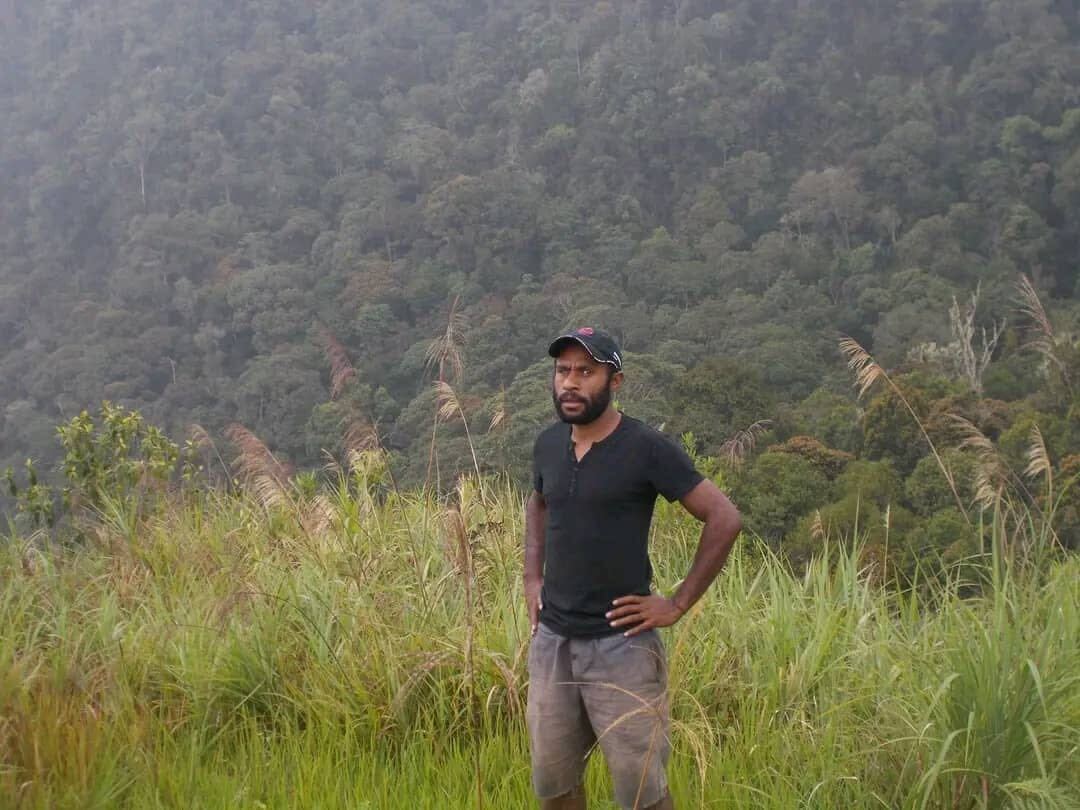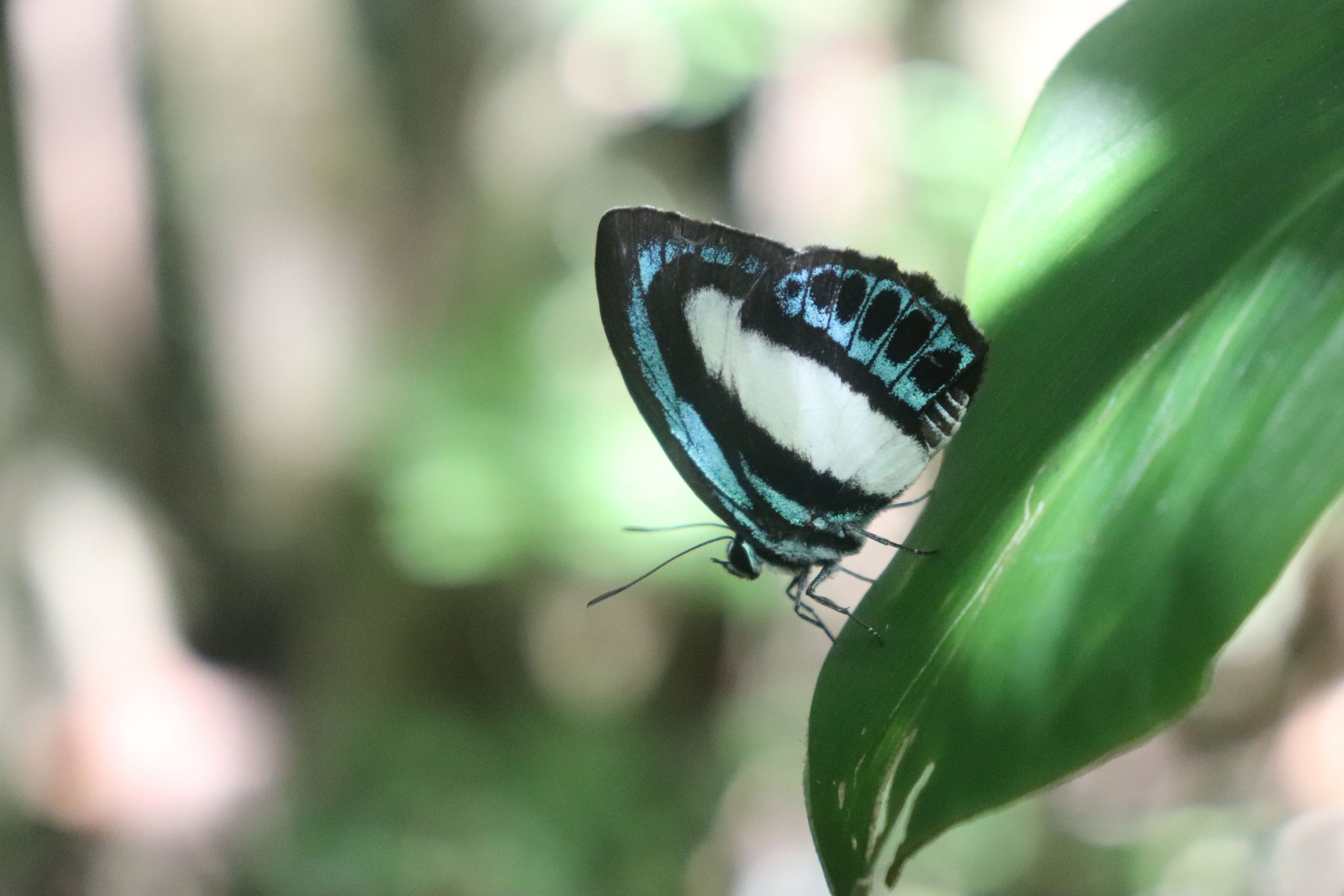In Conversation with Moses Kerry – Conservation in PNG
It is important that we share the views and opinions of the people we’ve met along the way in our 10 year partnership with Papua New Guinea (PNG). Here is what Moses Kerry had to say about his work and conservation in PNG, in his own words.


Moses Kerry
1. Hello Moses, can you tell us a bit about yourself, where you come from, what you do and what inspired you to do what you do?
I am Moses Kerry and I come from a small village called Sipamange of Bai Clan, Ward 8 of Tabare Local Level Government (LLG) in the Sinesine Yongomulg District of Chimbu Province, Highlands Region of Papua New Guinea. I’m a passionate Biologist and Conservationist. I formerly served as teaching staff with the Division of Biological Science, School of Science and Technology, University of Goroka from 2011-2021. I taught various biological science courses for undergraduate biology students. In 2017, I initiated and established the Mauberema Ecotourism and Conservation project back in my village with the support of my Mauberema youths and community members and the University of Goroka as our initial partner institutions.
The Mauberema project was part of my Master Thesis Project. I am proud to say that Clifford Yaee from CoolEarth was my student back then who volunteered to assist me with the initial set up and establishment of the Mauberema project. He was trained under Mauberema before completing his studies to do industrial training and is now employed with Cool Earth. I came to know about Cool Earth back in 2018 when I first sent an email requesting Cool Earth for a partnership with Mauberema. I went ahead to establish the Mauberema Ecotourism Nature Conservation Education Research and Training Center or MENCERTC and officially registered it as a local community based NGO in 2020 with the support of our lead partner WCS PNG, purposely to manage the Mauberema project.
Doing what we love doing is no coincidence. We have a moral obligation of protecting God’s creation and serving humanity and it is our call and duty to serve God’s purpose and mission on earth.
I enjoy the comfort and luxury of my childhood days back in my Mauberema forest. Indeed, I was a great hunter..I love going to the Mauberema forest to hunt for birds and mammals. I recall killing different bird species and sometimes even mammals especially cuscus, rodents and bandicoot. Those are fond memories that give me hope and courage now to protect them again as I grow up to learn and study about the importance of my Mauberema forest and its biodiversity. It gives me a sense of purpose for conserving my Mauberema forest and protecting its biodiversity from deforestation. Not only that but I also came to learn and understand now that Mauberema forest is located right at the centre of the Great Bismarck Forest Corridor, a global biodiversity hotspot of plant diversity and mammals and amphibians at high risk of extinction and is even more vulnerable to deforestation due to overpopulation. I have a responsibility as a trained Biologist to go back to my village and educate my people about the importance of Mauberema forest and the need to protect it before it loses its value.
2. What are the greatest drivers of deforestation in PNG? How are you addressing those with your team and organisation?
Deforestation is happening at an alarming rate in PNG. The main drives are logging, mining and large scale commercial farming and others like new road network construction, rural subsistence gardening and unsustainable harvesting of forest by locals, etc..
Mauberema Forest is also more vulnerable to deforestation due its close proximity and easy accessibility by the people. The main drivers of deforestation at Mauberema forest is gardening, unnecessary cutting down of trees for building purposes, or even small-scale logging. Bush fire is currently the main threat to Mauberema forest.
The main reason behind deforestation is the people’s need for natural resources to meet basic survival needs like food and building material, etc. People depend on forests for livelihood. At MENCERTC, we try to address those issues through various means and effort. We conduct community awareness by engaging students from the University of Goroka as part of their field trips assessment and project when visiting Mauberema. We also visit Dinima primary school, do awareness, distribute tree seedlings and engage staff and students for a tree planting program during World Environment Day. Also we set up a community tree nursery, distributed tree seedlings and engaged in community reforestation projects.
Currently, we are working on our Conservation Deeds with our lead partner WCS PNG, where we set up bylaws to protect the forest from unnecessary entrance and disturbance. We can’t solve deforestation at once but it requires consistent effort with patience and great endurance to overcome the struggles and challenges in addressing deforestation. It all boils down to money as a solution to drive all our organisation’s efforts toward addressing deforestation in Mauberema and PNG.


An example of the beautiful wildlife found in PNG in need of protection
3. Can you tell us about some of the successes at Mauberema that you wish to see scaled up around PNG and globally?
At Mauberema, we believe in self sustainability. Creating a sustainable conservation approach is a key tool for Biodiversity Conservation and management, climate change mitigation and socioeconomic development for our rural Mauberema community. As a newly established organisation, capacity building is very important for long term sustainability for any community based organisations. Thus, it requires more social investment and support from all stakeholders both government and non government organisations and institutions.
4. With the world failing to address the climate crisis, what are some priorities the climate community should focus on?
Plant trees, sustainable resource use, promote green energy. Reduce gas emissions and carbon trade.
5. Cool Earth is an organisation that disburses unconditional cash transfers to people in the rainforest. Do you see this as an important step towards greater climate and social justice?
Yes, it’s an incentive or compensation for Conservation. Use cash for livelihood needs which in part is reducing the level of unsustainable resource use and for common social infrastructure.
6. There are a lot of myths around unconditional cash payments to local communities, such as that people don’t invest money sensibly and would rather spend it on vice. In your experience, what do individuals, organisations, leaders do with the cash they receive?
Cash given by Donors or NGO is normally expended for the common good after all people or community members are informed and decisions made by local organisations structure and system. From experience with Mauberema, little cash payment that we receive from external support, we invest directly into building our organisation capacity like the office complex and resource centre. This is for our own sustainability purpose as a newly established CBO. I cannot speak for other Conservation communities who receive direct cash payments. But I have heard and seen that many communities once receiving cash payments from their partners NGO, they unwisely spend on other stuff which are not contributing directly to the self-sustainability of their organisation. This is not a good practice for them. Once cash payments are given, it must be used for its intended purpose to serve their organisation and people.
7. To conclude, we’d like to congratulate you for winning the prestigious Equator Prize last year. What are your plans moving forward now that you have the recognition you fully deserve?
Our plan now is to continue to build our organisation capacity and commercialise (business venture) our different products and services to sustain our organisation and livelihood. This will require more partnership support and social investment from all our stakeholders. Now that we won the Equator Prize Award, it gives us the opportunity to reach out to different organisations and institutions, business houses and our government and others for more support. We need more direct funding to support the organisation ‘s vision and mission moving forward.
To read more about sustainable conservation in PNG here is a paper by Moses Kerry and his colleague Malakai Parom, which was presented at the 2018 International International Climate Change Conference at the University of Goroka: Creating a Sustainable Conservation Approach in Papua New Guinea.
